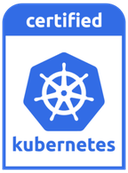* Allow multi-controller clusters on Google Cloud * GCP regional network load balancers have a long open bug in which requests originating from a backend instance are routed to the instance itself, regardless of whether the health check passes or not. As a result, only the 0th controller node registers. We've recommended just using single master GCP clusters for a while * https://issuetracker.google.com/issues/67366622 * Workaround issue by switching to a GCP TCP Proxy load balancer. TCP proxy lb routes traffic to a backend service (global) of instance group backends. In our case, spread controllers across 3 zones (all regions have 3+ zones) and organize them in 3 zonal unmanaged instance groups that serve as backends. Allows multi-controller cluster creation * GCP network load balancers only allowed legacy HTTP health checks so kubelet 10255 was checked as an approximation of controller health. Replace with TCP apiserver health checks to detect unhealth or unresponsive apiservers. * Drawbacks: GCP provision time increases, tailed logs now timeout (similar tradeoff in AWS), controllers only span 3 zones instead of the exact number in the region * Workaround in Typhoon has been known and posted for 5 months, but there still appears to be no better alternative. Its probably time to support multi-master and accept the downsides
Typhoon 

Typhoon is a minimal and free Kubernetes distribution.
- Minimal, stable base Kubernetes distribution
- Declarative infrastructure and configuration
- Free (freedom and cost) and privacy-respecting
- Practical for labs, datacenters, and clouds
Typhoon distributes upstream Kubernetes, architectural conventions, and cluster addons, much like a GNU/Linux distribution provides the Linux kernel and userspace components.
Features 
- Kubernetes v1.10.1 (upstream, via kubernetes-incubator/bootkube)
- Single or multi-master, workloads isolated on workers, Calico or flannel networking
- On-cluster etcd with TLS, RBAC-enabled, network policy
- Advanced features like worker pools and preemption (varies by platform)
- Ready for Ingress, Prometheus, Grafana, and other optional addons
Modules
Typhoon provides a Terraform Module for each supported operating system and platform.
| Platform | Operating System | Terraform Module | Status |
|---|---|---|---|
| AWS | Container Linux | aws/container-linux/kubernetes | stable |
| Bare-Metal | Container Linux | bare-metal/container-linux/kubernetes | stable |
| Digital Ocean | Container Linux | digital-ocean/container-linux/kubernetes | beta |
| Google Cloud | Container Linux | google-cloud/container-linux/kubernetes | beta |
Usage
Example
Define a Kubernetes cluster by using the Terraform module for your chosen platform and operating system. Here's a minimal example:
module "google-cloud-yavin" {
source = "git::https://github.com/poseidon/typhoon//google-cloud/container-linux/kubernetes?ref=v1.10.1"
providers = {
google = "google.default"
local = "local.default"
null = "null.default"
template = "template.default"
tls = "tls.default"
}
# Google Cloud
cluster_name = "yavin"
region = "us-central1"
dns_zone = "example.com"
dns_zone_name = "example-zone"
# configuration
ssh_authorized_key = "ssh-rsa AAAAB3Nz..."
asset_dir = "/home/user/.secrets/clusters/yavin"
# optional
worker_count = 2
}
Fetch modules, plan the changes to be made, and apply the changes.
$ terraform init
$ terraform get --update
$ terraform plan
Plan: 37 to add, 0 to change, 0 to destroy.
$ terraform apply
Apply complete! Resources: 37 added, 0 changed, 0 destroyed.
In 4-8 minutes (varies by platform), the cluster will be ready. This Google Cloud example creates a yavin.example.com DNS record to resolve to a network load balancer across controller nodes.
$ export KUBECONFIG=/home/user/.secrets/clusters/yavin/auth/kubeconfig
$ kubectl get nodes
NAME STATUS AGE VERSION
yavin-controller-0.c.example-com.internal Ready 6m v1.10.1
yavin-worker-jrbf.c.example-com.internal Ready 5m v1.10.1
yavin-worker-mzdm.c.example-com.internal Ready 5m v1.10.1
List the pods.
$ kubectl get pods --all-namespaces
NAMESPACE NAME READY STATUS RESTARTS AGE
kube-system calico-node-1cs8z 2/2 Running 0 6m
kube-system calico-node-d1l5b 2/2 Running 0 6m
kube-system calico-node-sp9ps 2/2 Running 0 6m
kube-system kube-apiserver-zppls 1/1 Running 0 6m
kube-system kube-controller-manager-3271970485-gh9kt 1/1 Running 0 6m
kube-system kube-controller-manager-3271970485-h90v8 1/1 Running 1 6m
kube-system kube-dns-1187388186-zj5dl 3/3 Running 0 6m
kube-system kube-proxy-117v6 1/1 Running 0 6m
kube-system kube-proxy-9886n 1/1 Running 0 6m
kube-system kube-proxy-njn47 1/1 Running 0 6m
kube-system kube-scheduler-3895335239-5x87r 1/1 Running 0 6m
kube-system kube-scheduler-3895335239-bzrrt 1/1 Running 1 6m
kube-system pod-checkpointer-l6lrt 1/1 Running 0 6m
Non-Goals
Typhoon is strict about minimalism, maturity, and scope. These are not in scope:
- In-place Kubernetes Upgrades
- Adding every possible option
- Openstack or Mesos platforms
Help
Ask questions on the IRC #typhoon channel on freenode.net.
Motivation
Typhoon powers the author's cloud and colocation clusters. The project has evolved through operational experience and Kubernetes changes. Typhoon is shared under a free license to allow others to use the work freely and contribute to its upkeep.
Typhoon addresses real world needs, which you may share. It is honest about limitations or areas that aren't mature yet. It avoids buzzword bingo and hype. It does not aim to be the one-solution-fits-all distro. An ecosystem of Kubernetes distributions is healthy.
Social Contract
Typhoon is not a product, trial, or free-tier. It is not run by a company, does not offer support or services, and does not accept or make any money. It is not associated with any operating system or platform vendor.
Typhoon clusters will contain only free components. Cluster components will not collect data on users without their permission.
Donations
Typhoon does not accept money donations. Instead, we encourage you to donate to one of these organizations to show your appreciation.